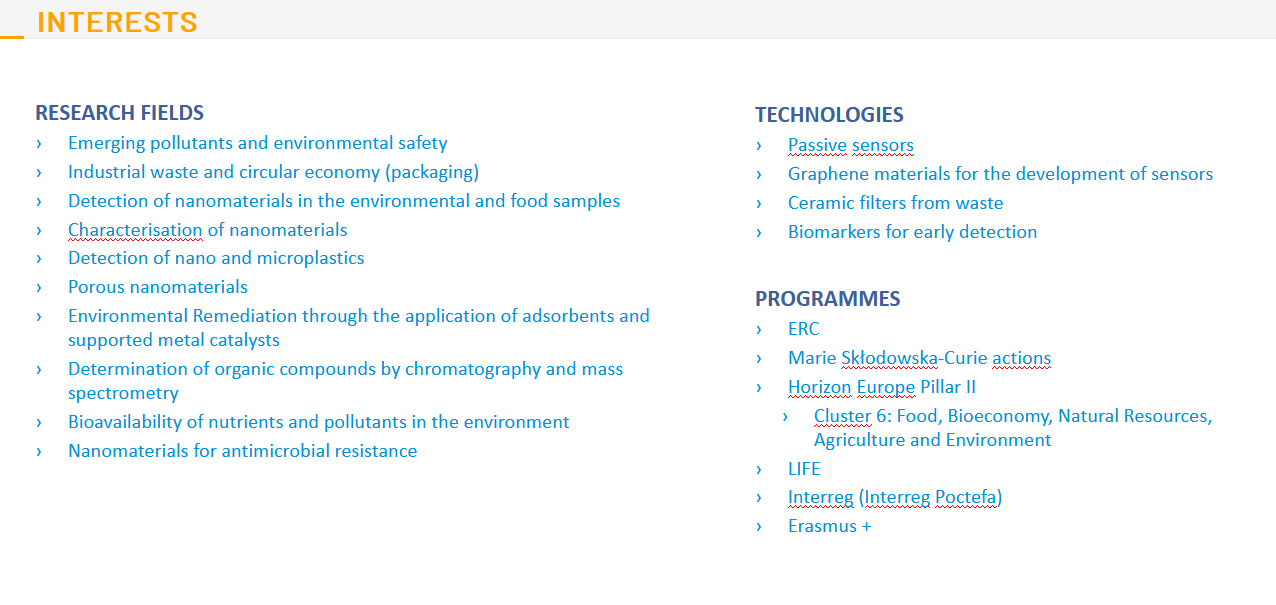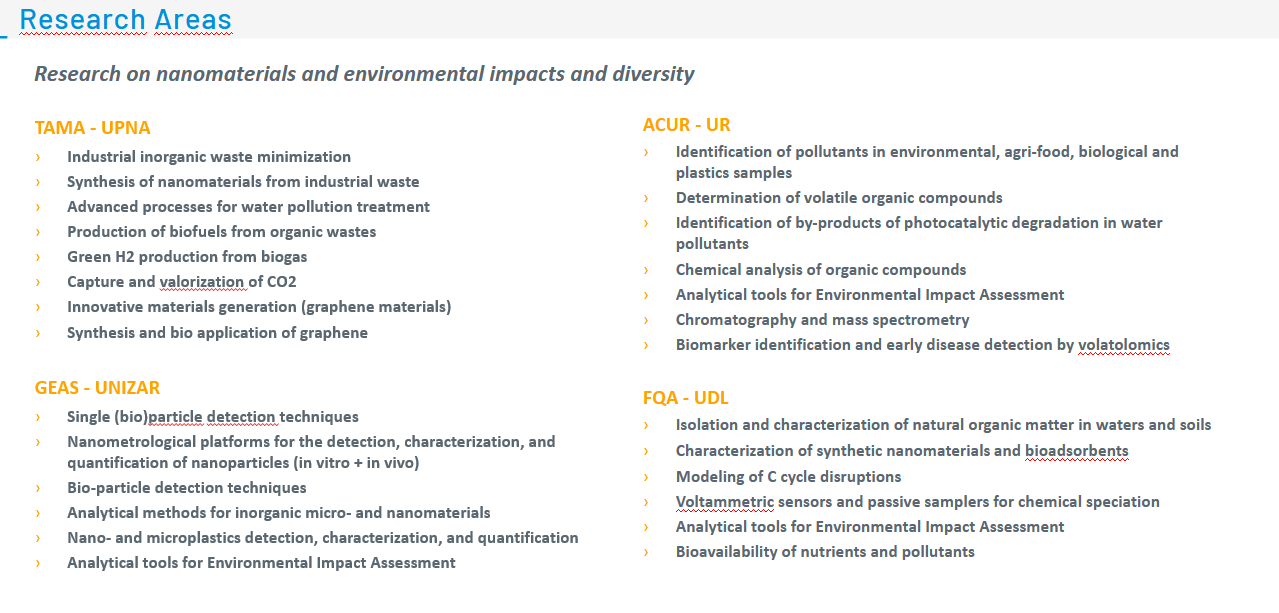NANOBIOENVIRON
RESEARCH ON NANOMATERIALS AND ENVIRONMENTAL IMPACTS AND DIVERSITY
Description:
Antibiotics pose an environmental problem as an indirect and uncontrolled route of exposure. Approximately 700,000 people die per year due to antibiotic resistance and it is estimated that by the year 2050 there will be 10 million deaths annually. The general objective of the Campus Iberus action group NANOBIOENVIRON is to develop a sustainable aggregation of research and innovation capacities of researchers of the four Universities of the Campus Iberus, the CNRS-University of Pau, and several companies, gathering initially an important critical mass and with capacity of leadership of projects at European level, to which could be added scientists and companies of other countries. Researchers clustered in NANOBIOENVIRON have experience in analytical, biochemical, microbiological, synthesis and characterization of nanomaterials, in microbiological studies (isolation and identification of bacteria resistant to antibiotics), in “in vitro” and in vivo studies to test the antimicrobial efficacy of the new bactericides, as well as in toxicological studies, which are done in parallel to verify the absence or existence of toxicological collateral risks. Additionally, some researchers work on the purification of surface water containing pollutants of that type and new emerging ones.
The main research line proposedis aimed at determining the impact of nanomaterials as new bactericides on metabolic, digestive, efficacy and biosafety processes when used in new products. To that aim, it is required to study the antimicrobial efficacy in vitro and genotoxicity and toxicity in vivo of the new bactericides, as well as the environmental stability of these nanomaterials by the detection, characterization and quantification of nanomaterials and antibiotics in biological and environmental samples, their stability and state of aggregation.
Studies will be necessarily validated in vivo and an overall evaluation of nanomaterials will be carried out to identify symbiotic effects against general pathologies and draw development plans to handle antibiotic residues in water.
This action group clusters researchers from the University of Zaragoza, Public University of Navarre, University of Lleida and University of La Rioja.


Members:
University
- Francisco Laborda García (IP, Universidad de Zaragoza)
- Antonio Gil Bravo (Coordinador, Universidad Pública de Navarra)
- Jaume Puy Llorens (Coordinador, Universitat de Lleida)
- Maria Teresa Tena Vazquez de la Torre ( Coordinador, Universidad de La Rioja)
- Sophia Korili (Universidad Pública de Navarra)
- Encarnació Companys Ferran (Universitat de Lleida)
- José Juan Galcerán Nogués (Universitat de Lleida)
- María Teresa Gómez Cotin (Universidad de Zaragoza)
- Ana Isabel Vitas Pemán (Universidad de Navarra)
- Javier Jimenez Lamana _ Univ. Pau
- Marta Jimenez Salcedo (Universidad de La Rioja)
- Ryszard Lobisnki _ Univ. Pau
- Adela López de Cerain (Universidad de Navarra)
- Josefina Perez Arantequi (Universidad de Zaragoza)
- Carlos Rey Castro (Universitat de Lleida)
- Maria Sierra Jimenez Garcia-Alcala (Universidad de Zaragoza)
- Joanna Szpunar _ Univ. Pau
- Eduardo Bolea Morales (Universidad de Zaragoza)
- Juan Carlos Vidal Ibañez (Universidad de Zaragoza)
- Yaneth Cardona Rodríguez (Universidad Pública de Navarra)
Other entities:
- Univ. Pau
- Universidad de Navarra
